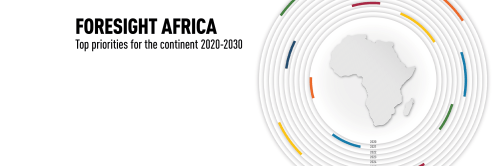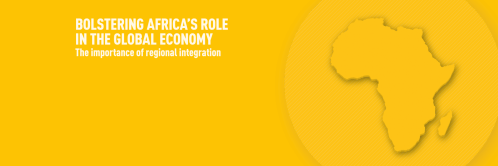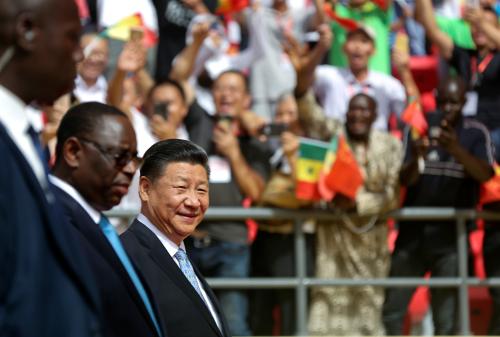Below is a Viewpoint from Chapter 6 of the Foresight Africa 2020 report, which explores six overarching themes that provide opportunities for Africa to overcome its obstacles and spur inclusive growth. Read the full chapter on bolstering Africa’s role in the global economy.
The provision of global public goods (GPG)—such as mitigating climate change, fighting tax avoidance, or preserving and extending fair rules-based international trade—is even more important for Africa than for other parts of the world. And yet, Africa could be sidelined from the decisionmaking process for the foreseeable future in a global governance system dominated by the G-2 (the United States and China) or the G-3 (should the European Union succeed in acting cohesively).
Mitigating climate change. A prime example of a GPG in which Africa has an outsized stake is climate protection given the region’s high exposure to climate change. In fact, according to the Intergovernmental Panel on Climate Change, given Africa’s geographic position, high dependence on ecosystem goods and services, and weak adaptation capacity, no continent is more vulnerable to the effects of climate change that come with worsening drought conditions, increased water stress, and sea level rise. (For more on the impacts of climate change on Africa, see Chapter 4.)
A world in which the rules of the game are essentially made by the superpowers alone, either globally or within their own spheres of influence, is not in Africa’s interest.
Protecting corporate tax bases. Given Africa’s challenge with domestic resource mobilization, another important example of a GPG for the region is the protection of corporate tax bases—in other words, preventing large corporations from shifting their accounting profits to the countries with the lowest tax rates. This issue is particularly important for Africa, where corporate taxes are a substantial fraction of total government revenue. Some progress has recently been made on this front under the OECD/G-20 Inclusive Framework on Base Erosion and Profit Shifting. The OECD-sponsored work has expanded to the issue of fair taxation of digital platforms, and is now trying to unify various proposals with the aim of reaching international rules focused on an agreed definition of a country’s tax base as well as a global floor to national tax rates. The issues involved remain contested: Progress has been made on tax evasion through the automatic exchange of information between countries, but steps to reduce legal tax avoidance are still being discussed. It is good that many African countries are participating in the work of the OECD/G-20 to make sure the region’s interests are well represented.
Ensuring a fair and stable system for international trade. As many African countries are small, trade-dependent economies where export-led strategies are necessary for economic success, a fair and stable system of rules governing international trade is a third example of a GPG vital for Africa. Sidelining the World Trade Organization would not be in the interest of African countries. In these as well as other domains of global governance, Africa’s mostly small nation-states have a great interest in a rules-based multilateralism rather than an international order based on ad hoc “deal-making,” where the very large players can exert their weight in each case.
The way forward
In the past, the least developed countries—including most African nations—were able to secure some special consideration in the domains of trade (“equal but differentiated treatment”) and climate (special treatment in the Kyoto protocol), owing to their low income levels. This principle should continue to be applied during the coming decade.
However, going forward, Africa’s losses because of tax avoidance or global warming threaten to dwarf the gains it may receive through the traditional special treatment regime. Full participation in the rule-making process is thus the first global governance-oriented objective that African nations should pursue.
Africa’s mostly small nation-states have a great interest in a rules-based multilateralism rather than an international order based on ad hoc “deal-making,” where the very large players can exert their weight in each case.
A related specific objective for African countries should be to argue for the introduction of a population variable in the calculation of voting weights where weighted voting applies, such as in the governance of the Bretton Woods institutions.
True, it would be unrealistic and unjustified for population to be the main determinant of voting weights in international institutions. There is no global democracy, nation-states are still the legitimate constituent units of the global system, and voting weights should reflect nations’ capacity and willingness to contribute resources to the provision of global public goods. But population should not be excluded altogether. The basis of global governance has always included a partial recognition of the democratic principle of “one person, one vote,” as is evident from the beginning of the Charter of the United Nations: “We the People…” This principle should translate into at least a modest role for population in calculating governance weights.
A world in which the rules of the game are essentially made by the superpowers alone, either globally or within their own spheres of influence, is not in Africa’s interest. For Africa to be able to lend its support to the kind of multilateralism from which it will benefit, African nations will have to take further steps in uniting their voices toward this common goal.
The Brookings Institution is committed to quality, independence, and impact.
We are supported by a diverse array of funders. In line with our values and policies, each Brookings publication represents the sole views of its author(s).







Commentary
How to make the global governance system work better for Africa
January 31, 2020